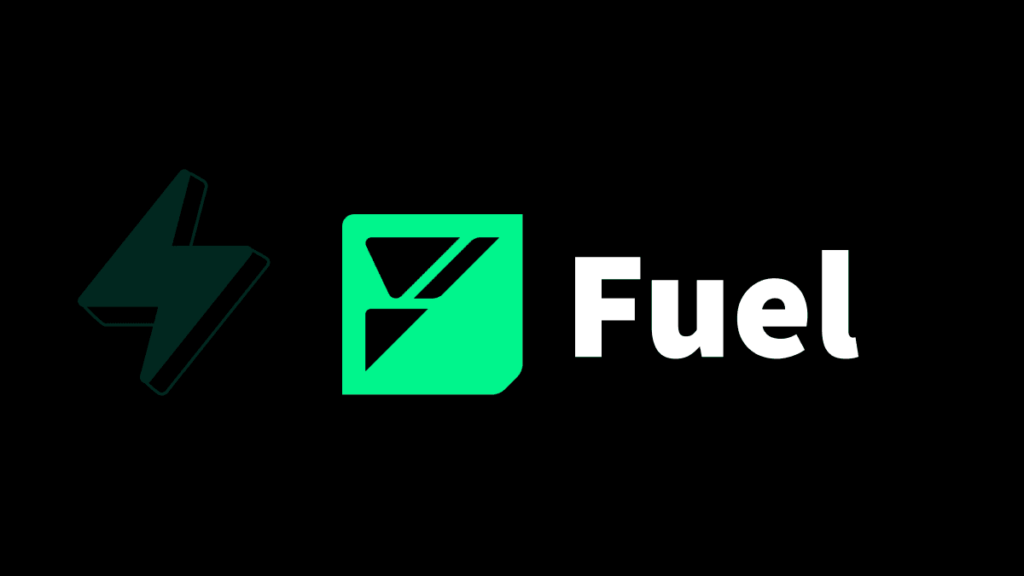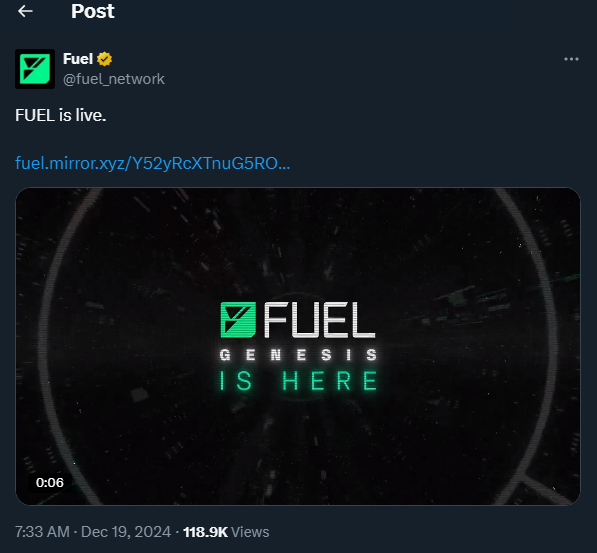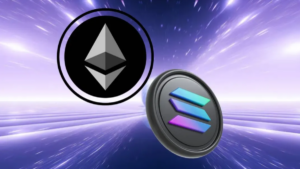Fuel Network has taken a significant step in its development by officially launching its native token, $FUEL. This milestone marks a major achievement for the network and its community, offering users a more equitable and verifiable experience on the Internet, similar to Web 2.0, but without fees or centralized intermediaries.
Eligible participants for the Fuel Genesis Drop can now claim their $FUEL tokens through the platform set up by the company. Additionally, $FUEL will be available on centralized and decentralized platforms such as Bybit, Bitget (on Ethereum L1 and Ignition), Uniswap (on Ethereum L1), MIRA, and Spark (on Fuel Ignition).
With this launch, Fuel takes a major step toward decentralization by opening up the staking and delegation process on both its Fuel Ignition network and Ethereum. Any user can participate in Fuel’s decentralized sequencer network by delegating their $FUEL tokens to trusted validators on both networks.
Fuel’s Decentralized Sequencer
Fuel’s goal is to fully decentralize the transaction sequencing process, which is crucial for improving fault tolerance, resistance to censorship, and network availability. While centralized solutions currently dominate the space, Fuel is betting on an evolution toward a shared and permissionless network for its rollups.

The Fuel sequencer uses Tendermint’s Proof of Stake (PoS) consensus to organize transactions on Fuel Ignition. Currently, Fuel has 13 validators on its network, with plans to make it fully decentralized in the near future. Users who delegate their tokens to these validators can earn rewards but must be aware that if a validator fails to act correctly or behaves maliciously, they could face slashing penalties.
How to Participate in $FUEL Staking
Staking is now available, and users can do it both on Ethereum and Fuel Ignition to earn rewards. The token’s annual inflation is set at 3%, adjusted by the validator set of the sequencer. On Ethereum, users must connect a compatible wallet and migrate their $FUEL tokens to the Fuel network if necessary.
On Fuel Ignition, the process is simpler, as it does not require token migration and fees are lower. Both options offer flexibility, allowing users to choose between Ethereum’s security or Fuel Ignition’s simplified integration, depending on their priorities and level of experience.










